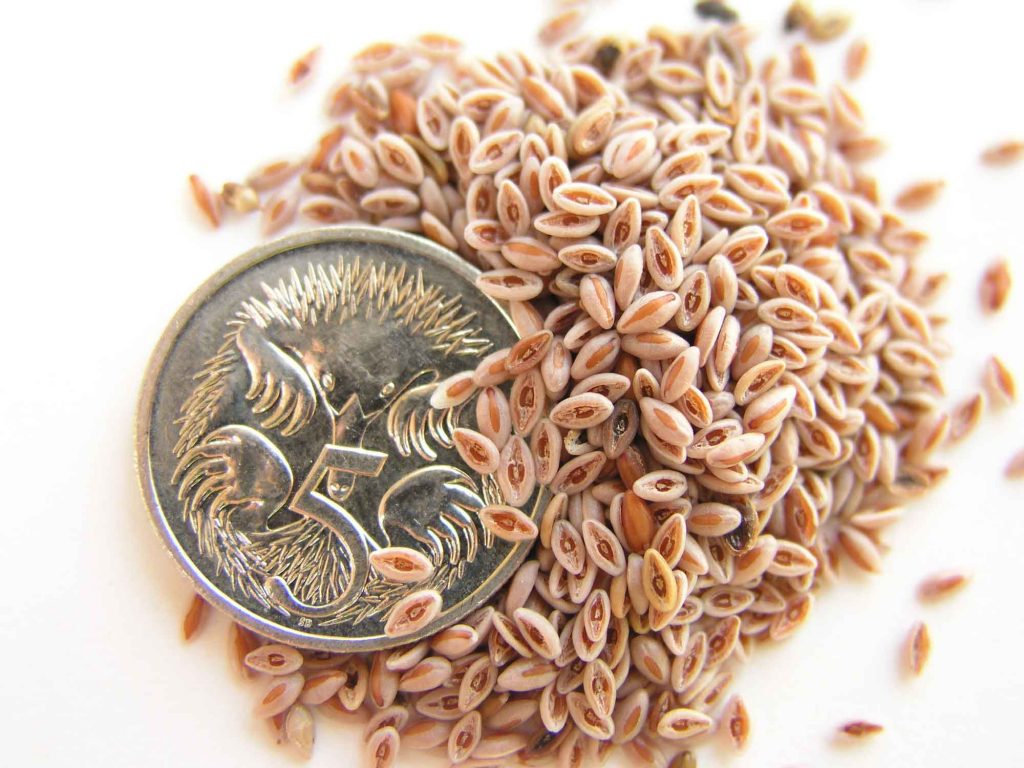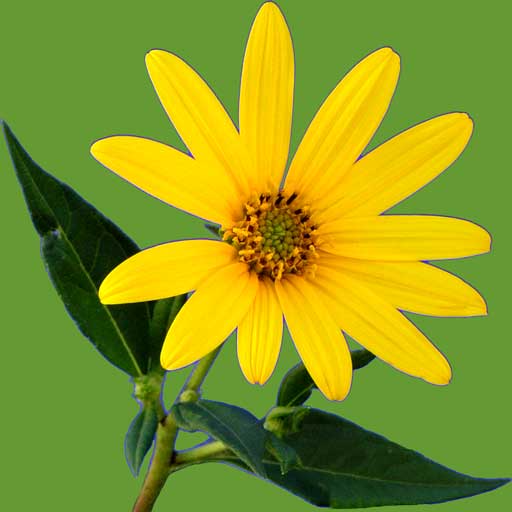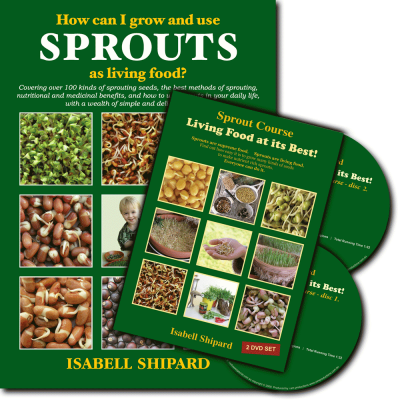Plantago afra (syn. P. psyllium), P. arenaria (syn. P. indica), P. asiatica, P. ovata (syn. P. ispaghula) F. Plantaginaceae
Description and Sprouting
Psyllium (pronounced sil-e-um), grows as an annual to 40cm high, with a rosette of thin, lanceolate, tapering leaves; small, white flowers, seed capsules containing numerous brown-black (P. afra/psyllium) or pink-brown (P. ovata/ispaghula), oval-shaped seed, to 3mm long.
To sprout psyllium use a terracotta saucer.

Constituents:
unsaturated fatty acids linoleic and oleic, mucilage content of seeds 10-30%, phenyl-ethanoids with acteoside and forsythoside; monoterpene alkaloids, beta-sitosterol, campesterol, aucubin, allantoin, salicic acid, glyconutrient xylose, anthocyanins, catechins, luteins, quercetin, soluble and insoluble fibre, protein
Vitamins:
A, B1, B2, B3, B5, B6, B17, C, K, choline, folic acid, inositol, PABA
Minerals:
calcium, iron, magnesium, phosphorus, potassium, selenium, silica, sodium, sulphur, zinc
Actions:
antioxidant, antiseptic, antispasmodic, astringent, demulcent, digestive, diuretic, expectorant, haemostatic, hypoglycaemic, laxative, stomachic, tonic, vulnerary, topically healing
Medicinal Uses
Psyllium is renowned for its mucilaginous properties and, when the seeds are soaked in water, they increase, from 8-14 times, their original size. This gelatinous mass promotes peristalsis, hydration of the faeces, provides a laxative exertion, relieves chronic constipation and produces a soft stool: as it lubricates, softens and increases faecal volume and viscosity. It may also relieve irritable bowel syndrome, diverticulitis, mucus colitis, cystitis, gastrointestinal ulcers and diarrhoea.
Psyllium is an excellent source of fibre, which also has direct action on the bowel. Acting like a bottlebrush, psyllium cleanses the bowel and by promoting peristaltic action of the muscles, motivates bowel movement. When using psyllium it is essential to drink plenty of water, so that the psyllium is able to swell, absorbing water to develop the mucilage action. Studies have shown that psyllium is more beneficial than bran, in maintaining regularity.
Herbal colon cleanse This recipe can be used several times a year to clean the colon. Before going to bed, put in a glass 1 teasp. psyllium husks, 1 teasp. green clay (helps to eliminate toxins from the colon), 1 pinch each of ginger, cinnamon and cayenne powder. Fill glass with water and stir to mix well, and drink. In the week of doing the colon cleanse, gradually build up to 4 teasp. psyllium husks a day. Psyllium seeds can be used in place of husks, but it is recommended that they be presoaked in water and then blended fine, before adding the other ingredients (as unsoaked whole seed may go through the body undigested). As the seed is considered to have a more purging action, it is advisable to start with a smaller amount of the seeds, than is stipulated for the husks.
Soluble fibre has a beneficial effect on serum glucose and cholesterol levels and assists in maintaining healthy blood vessels. In a random, controlled, crossover study of 68 adults with hyperlipidaemia, taking 8 grams of psyllium seed daily, serum cholesterol levels were considerably reduced.68 A large trial, using psyllium as a source of fibre, carried out at Newcastle University, Australia, found that, after 8 weeks, cholesterol levels were lowered 14-20%.69 Another trial cited in the Archives of Internal Medicine February 1988 with a double-blind, placebo-controlled study showed that after 8 weeks on 3.4 grams of psyllium reduced serum total cholesterol levels by 14.8%, low density lipoprotein (LDL) cholesterol by 20.2%, and the ratio of LDL cholesterol to high density lipoptotein cholesterol by 14.8% relative to baseline values.
The mucilaginous action is also able to absorb toxins in the bowel, particularly heavy metals and aluminium by acting like a sponge to soak them off the walls of the intestines and remove them from the body. Research has found psyllium husks inhibits the ability of a carcinogenic agent dimethylhydrazine (DMH), which has been found to cause colon cancer. This spongelike action has a dual advantage, as it can decrease hunger, when taken with meals.
There is help for haemorrhoid sufferers too, as psyllium softens the stools, reducing the irritation of affected veins. The gel-forming, soluble fibre has also been found to give relief, reducing the irritating effects of allergens, associated with leaky-gut syndrome.
Powerful phytonutrients of psyllium act as antioxidants, providing nutritional support and cofactors for the liver’s cytochrome P-450 I and phase II detoxification pathways, and these properties also have the ability to digest fatty globules in the lymph. We all need clean livers and lymph. Other therapeutic uses include: for coughs, to promote urination and for blood in the urine, inflammation of the mouth and throat, menopausal discomforts, cramps, fevers, varicose veins, diabetes, asthma, bronchitis, sinusitis, hay fever, thrombosis, bed wetting and bladder ailments, thrush, arthritis, candida, cancer, and for toning of the uterine muscles. Next time, when afflicted with a sore throat, cough or gum inflammation, drink psyllium seeds or leaves, as a tea, and use as a gargle.
A teaspoonful of seed or seed husks, soaked in water for several hours, then mixed with fruit or vegetable juice and eaten between meals, gives a feeling of fullness, nourishment and reduces hunger pangs. Psyllium can also assist people, who wish to lose excess weight. Of importance, too, is the knowledge that psyllium is rich in fibre, which can absorb excess fat and kilojoules consumed, taking it through the body, so that the body does not store it as fat or cholesterol.
Senior citizens and invalids find that psyllium husks made into a drink with fruit juice, helps to stimulate the normal reflex activity of the bowel. This psyllium ‘getup- and-go’ action is useful, for any person who leads a sedentary lifestyle, like computer operators and authors!
It is recommended that psyllium should not be taken, simultaneously, with any drugs, but at least an hour apart, or this herb could lower the absorption rate of the medication used, and reduce the effectiveness. When looking for psyllium in a health food shop, look for the pink seeds of Plantago ispaghula, as the seed has over double the mucilage content of the other species, and it is the epidermis of the seed husks that have the highest proportion. One gram of the husk can absorb 40 grams of water to produce the thick gel that provides a number of beneficial actions:
• to act against constipation;
• the gentle soothing action relieves irritations of the digestive system;
• when taken before a meal, the thick gel-like substance formed by psyllium mixed with water, helps to absorb sugars and fats, and therefore promote weight-loss;
• it locks away sugars to delay their action in the blood and thus promotes an equilibrium of glycaemia in non-insulin dependent diabetics;
• and it works to eliminate bile salts which can act indirectly to lower cholesterol.
Commonly seen, plantain species in Australia, like Broad leaf plantain Plantago major, Narrow leaf plantain P. lanceolata and Buckshorn plantain P. coronopus have similar properties to psyllium in the seeds and leaves, although, the seed is not considered as strong in action.
When I am in the garden and see mature seed heads on any of these plants, I like to strip the seeds off the stem and chew. Plantain species contain a very special substance, allantoin, that stimulates growth of new cells, helps knit cells back together (even bone cells); the speedy anti-inflammatory and healing properties, act as an immune booster. Plantain also has the pain relieving and regenerating property, salicic acid (see millet p 52).
… … omitted text, please see How can I grow and use Sprouts as living food? for full text.


